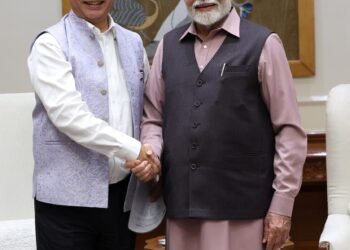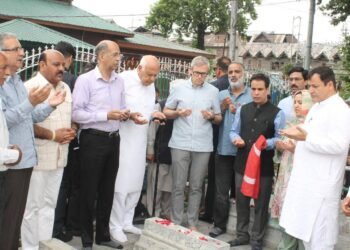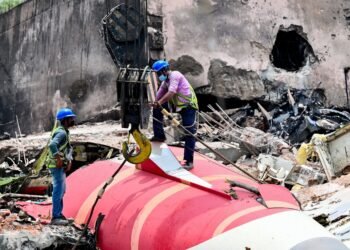BY PC Bureau
The imposition of President’s Rule in Manipur has sparked intense reactions from various sections of the state, particularly among the Meitei community. While some view it as a necessary step to restore stability in the conflict-ridden region, many Meiteis see it as an imposition that disregards their democratic rights and political agency.
Several Meitei organizations have strongly opposed the decision, arguing that it undermines the democratic framework of the state. The Coordinating Committee on Manipur Integrity (COCOMI), a prominent civil society organization representing Meitei interests, has expressed dissatisfaction with the central government’s decision.
Somorendra Thockchom, a former coordinator and consultative member of COCOMI, stated, “It is not right to impose President’s Rule. One competent person should have been entrusted with the responsibility as Chief Minister of Manipur after Biren Singh resigned.” This sentiment is echoed by several Meitei leaders who believe that an alternative leadership structure within the state should have been considered instead of direct central intervention.
President’s Rule in Manipur. OMG! 😱😱😱
It is indeed wildly impressive to see my beloved and enlightened individuals who are confused deeply – whether to mourn or celebrate the arrival of PR.
PR is late? PR is early? PR is on time?
People who have never experienced (wait,… pic.twitter.com/Bbg0HHBlSn
— Luwang Meitei Khamba (@meiteikhamba) February 13, 2025
ALSO READ: Kuki-Zo Community’s Reaction to President’s Rule in Manipur: Hope and Uncertainty
According to Meitei organizations, the situation in Manipur is complex, and a blanket imposition of President’s Rule may not adequately address the ethnic tensions and security concerns plaguing the state. Many fear that this move will sideline the voices of the Meitei community and fail to address the root causes of the ongoing conflict.
Political Concerns and Democratic Implications
Many Meitei political observers see the imposition of President’s Rule as an encroachment upon the state’s political autonomy. They argue that the situation in Manipur, though challenging, required a political resolution rather than a bureaucratic takeover by the central government.
A prominent political analyst from Imphal noted, “The Meitei people are not opposed to law and order measures, but President’s Rule has historically been used as a tool of control rather than as a means of genuine conflict resolution.”
Some Meitei scholars and legal experts also question whether this move will help in restoring peace or merely prolong the instability in the region. They point out that previous instances of President’s Rule in India have not always resulted in meaningful conflict resolution but rather in a more centralized approach to governance that alienates local populations.
Social Media Reactions and Public Sentiment
On social media platforms like Twitter, Facebook, and WhatsApp groups, Meitei individuals have voiced their concerns regarding the imposition of President’s Rule. Many feel that the decision has been taken without proper consultation with state leaders and the Meitei community, who are among the most affected by the ongoing ethnic violence.
Twitter user @MeiteiVoice posted, “President’s Rule undermines our state’s autonomy. We need leadership that understands our unique challenges.” Another user, @ImphalCitizen, wrote, “Central intervention is not the solution. Empower local leaders to restore peace and order.”
Many Meitei netizens have used hashtags like #SaveManipur, #MeiteiRights, and #NoToPresidentsRule to express their discontent. Some have even accused the central government of favoring certain ethnic groups over others, exacerbating tensions rather than resolving them.
However, there are also voices within the Meitei community who see the decision as a temporary measure to bring stability. Some users on social media have argued that given the scale of the ethnic violence, the central government had no choice but to intervene directly.
Implications for the Future
The imposition of President’s Rule in Manipur raises significant questions about the future governance of the state. While the move is aimed at restoring order, its long-term implications remain uncertain. Will it lead to a more inclusive dialogue and resolution of ethnic conflicts, or will it further alienate key stakeholders, including the Meitei community?
Many Meitei leaders have called for a clear roadmap for restoring democratic governance in Manipur, including fair elections and meaningful dialogue between all communities. They emphasize that sustainable peace can only be achieved if all ethnic groups, including the Meiteis, have a say in the state’s political future.
For now, the Meitei community remains divided—some see President’s Rule as an opportunity for stability, while others view it as an infringement on their rights. The coming months will be crucial in determining whether this decision will ease tensions or further deepen the crisis in Manipur.













